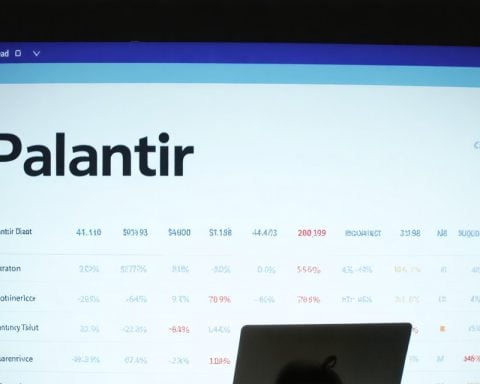U.S. Defense Department Expands Blacklist
In a significant escalation of U.S.-China relations, the Pentagon has included the Chinese electric vehicle battery manufacturer CATL and tech powerhouse Tencent Holdings on a list of companies associated with China’s military activities. This controversial decision has prompted strong reactions from both firms, which claim the action is misguided.
Tencent, known for its popular WeChat app, responded by stating that this move would not impact its business operations. The company announced its intention to challenge the categorization, hinting at possible legal action to rectify its position on the list. Similarly, CATL asserted that it engages solely in civilian and commercial operations, distancing itself from any military affiliations.
The designation, publicly released in the Federal Register, serves as a cautionary note for U.S. enterprises regarding the potential repercussions of collaborating with these identified companies. The list, established under U.S. law, now encompasses 134 firms, explicitly highlighting concerns over national security.
Meanwhile, Ford is making strides in Michigan with its new battery plant, projected to produce low-cost lithium-iron batteries using CATL technology. Although this development promises economic growth, community opposition has led to significant cuts in tax incentives associated with the project.
As U.S. lawmakers continue to pressure the Pentagon for stricter measures against Chinese firms, the implications for international trade and relations are becoming increasingly complex.
U.S. Defense Department’s Blacklist: What You Need to Know About Its Impact and Implications
U.S. Defense Department Expands Blacklist
The recent decision by the U.S. Defense Department to expand its blacklist of companies associated with China’s military has raised eyebrows across the tech and automotive industries. Key players such as the Chinese electric vehicle battery manufacturer CATL and technology giant Tencent Holdings have been added to this list, signaling a significant shift in U.S.-China relations.
Key Features of the Blacklist
– Inclusion of Major Companies: The blacklist now includes 134 firms, raising concerns for U.S. businesses that may work with these companies.
– Legal Challenges: Both Tencent and CATL have announced intentions to challenge their inclusion, with Tencent considering legal avenues to dispute the designation.
– Implications for Collaborations: U.S. companies are cautioned that partnering with listed firms could lead to legal and operational complications.
Pros and Cons of the Blacklist
Pros:
– National Security: Aims to protect U.S. national security interests by limiting cooperation with potentially hostile entities.
– Awareness: Raises awareness among U.S. businesses regarding the risks of engaging with certain foreign firms.
Cons:
– Economic Impact: May hinder U.S. companies’ ability to collaborate on international projects, particularly in technology and manufacturing sectors.
– Market Dynamics: Could lead to increased prices and reduced innovation due to limited partnerships and knowledge sharing.
Use Cases and Market Analysis
The expansion of this blacklist can have profound implications for industries beyond the automotive and tech sectors. For example, companies looking to invest in electric vehicle technology might reconsider partnerships with firms on the list. Additionally, sectors like consumer electronics, where Tencent has a significant foothold, may experience ripples of uncertainty affecting market dynamics and consumer trust.
Trends and Innovations
The automotive sector is currently witnessing a push towards more sustainable practices, and companies like Ford are investing in battery technology using CATL advancements. This specific project reflects the tension between pursuing sustainable innovations and navigating geopolitical tensions.
Security Aspects and Sustainability Predictions
The U.S. government is increasingly vigilant concerning national security, particularly regarding foreign investments in critical technologies. As global supply chains become more complex, ensuring cybersecurity and sustainable practices in these partnerships will be pivotal.
Pricing and Market Adaptations
The uncertainty following the blacklist can also affect pricing structures across various industries. Businesses may need to adapt their pricing strategies to account for the potential risks and operational challenges associated with engaging with companies on the blacklist.
The situation continues to evolve, with lawmakers in the U.S. advocating for more stringent measures against Chinese firms.
For further insights into technology and international business relations, visit Reuters.


















